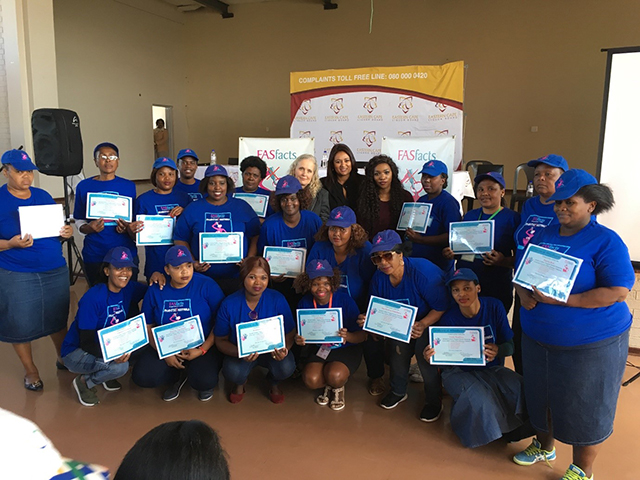
Members of the CSSR presented research findings at an early celebration of International Fetal Alcohol Syndrome awareness day in Mdantsane on the first of September. The event was set up by FASfacts and the Eastern Cape Liquor Board, with support from Distell. The research project aims to describe the prevalence and intensity of alcohol usage during pregnancy in the East London area, describe the narratives of pregnant women who drank during pregnancy including those of family members and evaluate current interventions aimed at reducing the problem.
We met with mentors in the Pregnant Women Mentoring Programme, an initiative that trains community members to inform and support pregnant women in abstaining from alcohol. The mentors received credentials and tokens of appreciation. The mentors also gave testimony alongside some participants in the programme regarding the value of the intervention.
The research results indicate that alcohol usage during pregnancy is indeed prevalent in the East London area, highlighting the need for continued intervention. Sibongile Matebese and Nontozamo Tsetse presented findings from their study and described how widespread alcohol abuse and other challenging circumstances contributed to participants’ drinking (See our post on the topic: https://www.ru.ac.za/criticalstudies/latestnews/acritiqueonfoetalalcoholsyndromeawareness.html). Nicola Graham described her work with FASfacts to evaluate and increase the efficacy of interventions in alcohol usage during pregnancy.
FASfacts CEO Francois Grobbelaar told the assembly of their intentions to expand the NGO to include a branch in each province. The department of health was represented by healthcare practitioners from the NU17 clinic, who used a room in the community centre to offer care to those attending. Such collaboration is thanks to the willingness of all parties to create social change, as well as the hours spent by members of the CSSR to conceptualise the research before it was formally proposed in 2016.
